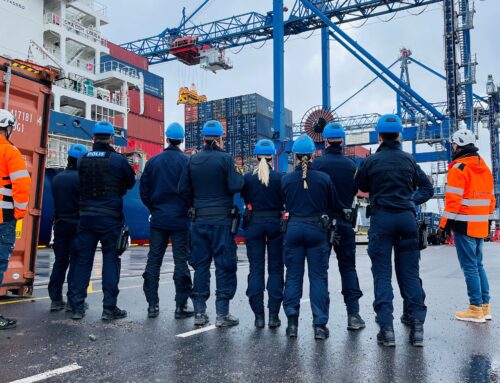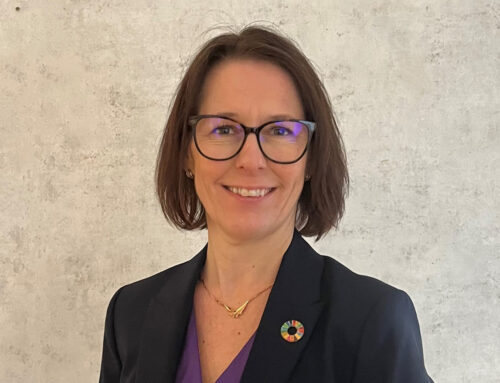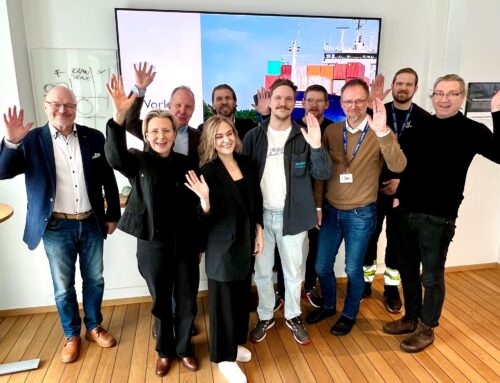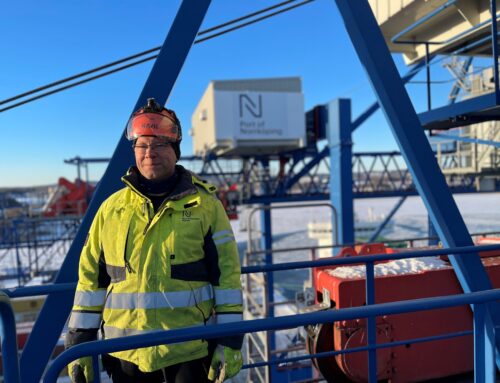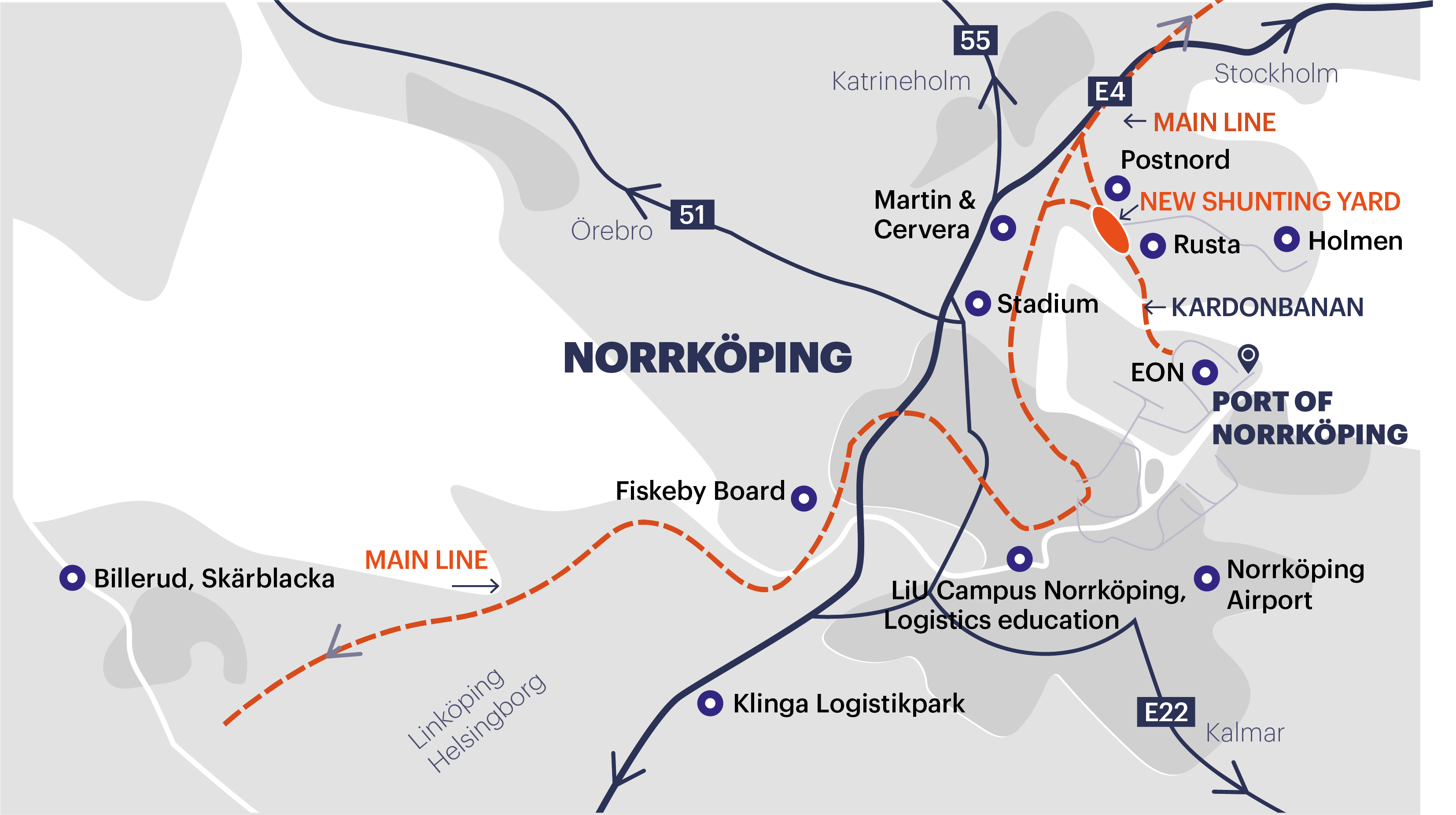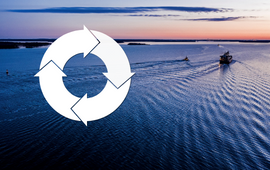
2022-10-03
To manage the transition into a more sustainable society, we must become more resource efficient. The Port of Norrköping is part of a research project that takes a closer look into how the port and shipping might play an increasingly important role in the circular flow of various materials that need to be transported in an efficient way for recycling.
The circular economy is very much about our consumption and production both in Sweden and in the EU, and the transports as consequence of this, today account for one third of our CO2 emissions. In Sweden, we recycle a lot of waste that mainly goes into energy recovery, but in order to achieve our environmental goals, we must increase our material recycling. This in turn means increased transports. These new transports generated need to be reviewed so that no unnecessary transports are carried out and those carried out are as energy efficient as possible.
Collaborative project on the maritime industry’s role in a circular economy
“The project ‘The role of Swedish Ports in a circular Economy’ (SHREK) is headed by VTI, and financed by the Swedish Transport Administration. The idea for the project came from the fact that a transition to a fossil-free Sweden places demands on an increased circular economy and a fossil-free transport system. Shipping is an energy-efficient mode of transport and it is thus interesting to investigate how shipping can be used for the new flows that arise when more material is to be recycled and reused”, said Linea Kjellsdotter Ivert, head of the project and senior researcher of VTI.
“In Sweden, there are limited possibilities to handle all the different types of materials to be recycled and reused. Some materials will have to be transported to other countries. Circular materials are often low-value and we must find cost-effective modes of transport and sea transport is a good choice for longer transports. In this context, the port has a key role to play.
Knowledge is a prerequisite for increased recycling
The purpose of the project is to develop knowledge that creates the conditions for materials to be recycled or reused where appropriate to be transported by sea.
“We have worked to understand which types of waste has potential to find their way up the waste hierarchy, that is, go from landfill or energy recovery to material recycling or reuse. Furthermore, we have looked at the potential transporting these flows by sea. By looking at national statistics, which types of waste are the largest and where they are generated, we were able to work with the waste operators and ports to produce a gross list of materials worth focusing on such as plastics, tyres, wood, dredging masses, waste oil, oil water and fly ash, among others. In step two, we have worked with a number of cases and developed logistics solutions which we have tested”
The port as a logistic node
We have come to a lot of exciting conclusions. The first conclusion is about the port as a logistics node that unites different modes of transport and can provide value-added services such as storage, consolidation and stuffing (loading goods into a container). The materials to be recycled are scattered among many waste generators, typically in small volumes. To achieve cost-efficiency it must be possible to collect larger volumes and here the port becomes central. The port also has an important role to play as a knowledge provider towards its stakeholders with its local knowledge of different goods owners.
Great need for sea transport calls for increased knowledge
– Actors who work with circular flows are not used to transporting goods by sea but need more knowledge and support. Stuffing containers is standard for many ports, but is not something that these operators are usually used to. This makes it easier to use land transport. Here the port is an important bridge.
This project is a good example of how collaboration between different industries and between industry and academia can create solutions to a complex problem. It is a privilege to lead this project as our corporate partners are driven and innovative and often come up with concrete proposals. Research projects make it possible to test outside the framework and personally I think it is when you go from words to deeds that you really learn, something that SHREK has made possible.” Linéa concludes.
Future solutions lies in cooperation
– We have a business concept of contributing to more sustainable transports. To deliver on the concept we must get involved in different contexts where we work towards this, both in the short and long term. By collaborating, we may contribute to sustainability in other places as well and not just in flows through the port. We see connections in other contexts to Logistikia och Cleantech Östergötland We believe that the circular flows can become interesting over time. Being involved from the beginning in this project, understanding and finding contacts felt important to us, said Magnus Grimhed, Försäljnings- och Marknadschef på Norrköpings Hamn AB.
Business development and sustainability goes hand in hand
“For us, this is about business development and we see great potential with volume growth in circular flows. We already handle volumes, such as scrap, wood chips, slop and carbonic acid. One of the reasons we want to be involved is to understand what we don’t know today. The waste that has been burned yesterday must be reused tomorrow. In the future, these fractions will increase and it will also require large resources to recycle. It will raise other demands when it comes to, for example, business permits and work environment. It is still too early to say anything, but we are looking broadly at bulk handling, terminal services or completely different flows, types of goods and modes of transport. We have invested about 200 hours in the project, that is our contribution. The project will be completed in 2022. It is very exciting and we are on for Project Application 2.0” Magnus concluded.
Final report to be written but new project application already submitted
The project will not be finished until May 2023 and before that a final report will be written, but a new application has already been submitted. The next project will focus on a number of specific materials and be broadened to include more actors in the circular chain. The entire current project group is also involved in the next project.
* * *
Facts:
The project includes research organizations as well as representatives of the port industry and the waste and recycling industry. The participants are: VTI, SSPA, Port of Norrköping, Hallands Hamnar, Oslo Port, Port of Trelleborg, Waste Sweden, City of Gothenburg, Kretslopp och Vatten and Ragn-Sells.
The project, which is funded by the Swedish Transport Administration, started in 2020 and will end in May 2023.
Project manager Linea Kjellsdotter Ivert is a senior researcher at VTI and defended her thesis at Chalmers in 2012 in production logistics. Through an acquaintance, she started working with circular economy where her knowledge in transport and logistics became extremely important. Recycled materials and reused products compete with virgin materials and new products and activities in the circular chains are often expensive, which places demands on cost-effective logistics and innovative collaborations between actors. Linea works in several projects with a focus on circular flows but also a lot with last-mile logistics (e-commerce flows) and the role of various actors in the transition to a fossil-free freight transport system.

